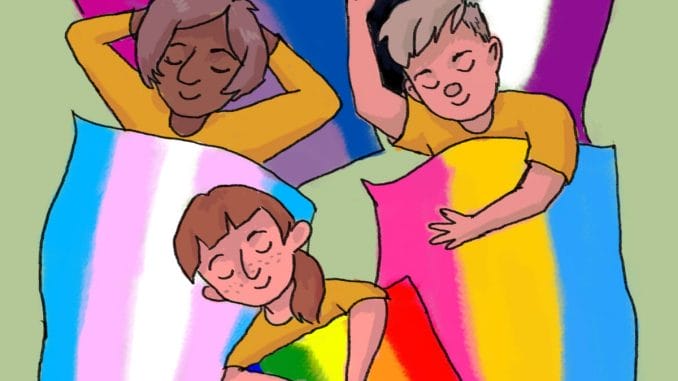

VCU officials have confirmed they anticipate the university will introduce the LGBTQ-friendly housing option, affectionately known as “lavender housing,” for students as early as the fall 2016 semester.
The move, if completed, will make VCU the fourth major Virginia university to adopt the housing option after the University of Richmond, Old Dominion University and George Mason University. In the fall of 2014, George Mason was the latest major Virginia university to institute lavender housing.
Charles Klink, interim vice provost for student affairs, confirmed the anticipated housing will present students the option to live in a designated LGBTQ-friendly living space. According to Klink, details surrounding the housing, such as where it will be located and how large it will be, are still undecided.
“That’s going to be difficult because we’re probably going to do some renovations with some halls, so part of it is what housing stock we’re going to have,” Klink said. “That will help determine whether it will be for first-year students or if other students are involved.”
Another detail not yet determined is whether the housing will be strictly for students who identify as members of the LGBTQ community or if it will be open to all students.
Klink said that although he cannot confirm it, he expects that members of the LGBTQ community and non-LGBTQ allies will both be able to utilize the lavender housing.
Paris Prince, special assistant for LGBTQ initiatives under the division for inclusive excellence said students will be asked whether they would like to identify their sexuality in the application process for on-campus housing.
According to Prince, this will likely be in a supplementary form.
Prince said the fact that students will be asked whether they would like to identify their sexuality is a significant statement from the university and a step forward for members of the LGBTQ community in their fight for equality.
“There’s no longer the presupposition that because I’m gay I don’t want anyone to know, or I need to be shrouded in heteronormativity,” Prince said. “I think this process highlights that we have a voice and we can use it as we choose to determine how we want to live, that’s why lavender housing is a statement beyond the tangible dorm as a space.”
In a September interview, Clayton Hall, a senior student who identifies as gay, condemned the idea of lavender housing, which GayRVA reported VCU was considering in 2014.
“I think separating certain students from other students because of their sexuality is a step backwards. Why do we need special housing for gay students? Can’t they just live with everyone else?” Hall said.
If we have a special dorm for students that are LGBT then that’s kind of like saying the other dorms aren’t LGBT-friendly,” Hall said.
Klink believes that giving students the option to live in lavender housing will be beneficial to members of LGBTQ community.
“In my mind when you look at any underrepresented group, there’s been some kind of process of identity development where it’s helpful to have people that you identify with around you,” Klink said.
Prince said the advocacy group Equality VCU is credited for pushing the university toward the decision to introduce lavender housing.
When you look at different kinds of centers for specific student groups, I think they do serve a purpose. With this, students have an option to live in a residence hall with all sorts of people, or people who identify like they do,” Klink said.
Fadel Allassan, Staff Writer
 Fadel is a sophomore print journalism major. He is fluent in English and French and enjoys writing about politics. // Twitter | Facebook | LinkedIn
Fadel is a sophomore print journalism major. He is fluent in English and French and enjoys writing about politics. // Twitter | Facebook | LinkedIn


Leave a Reply